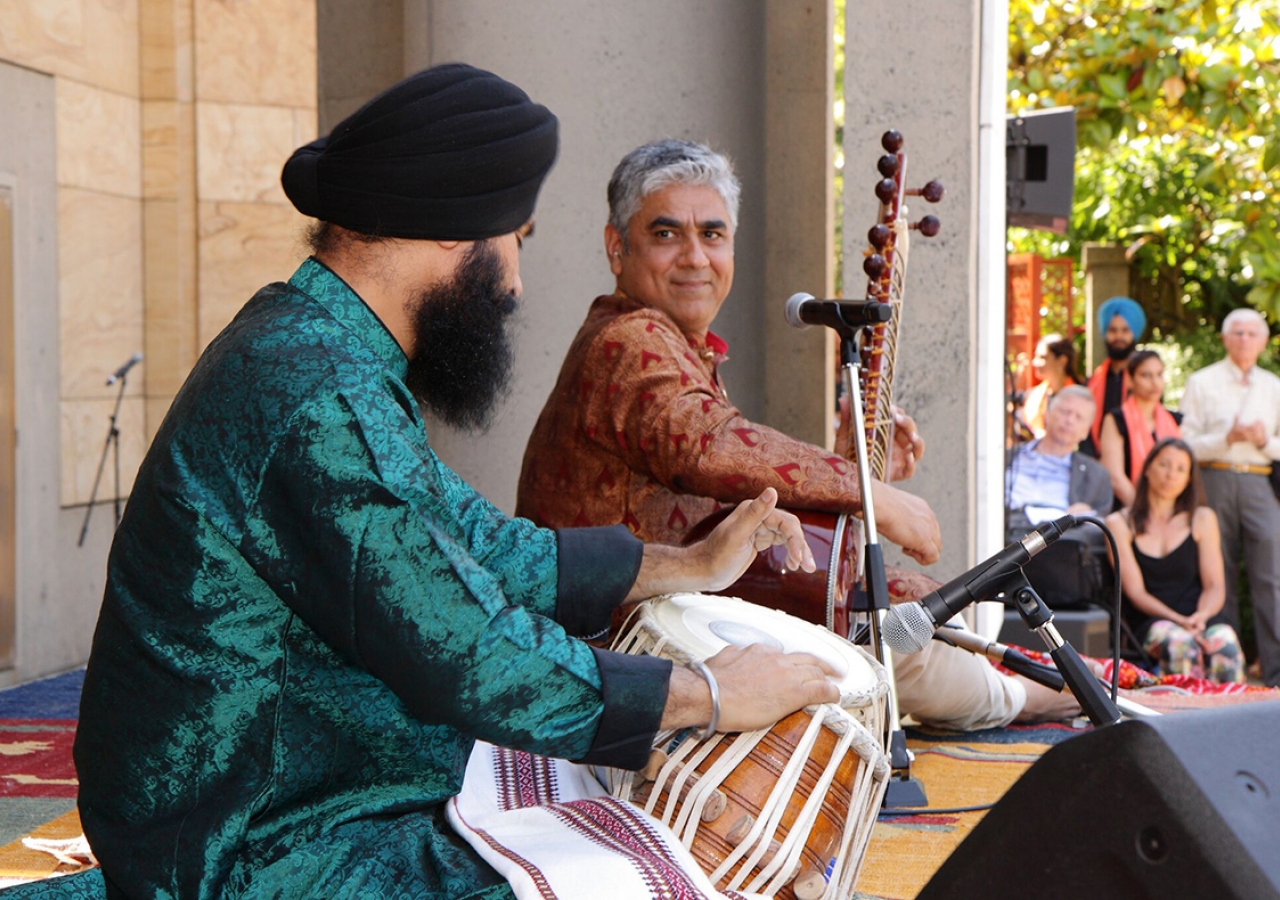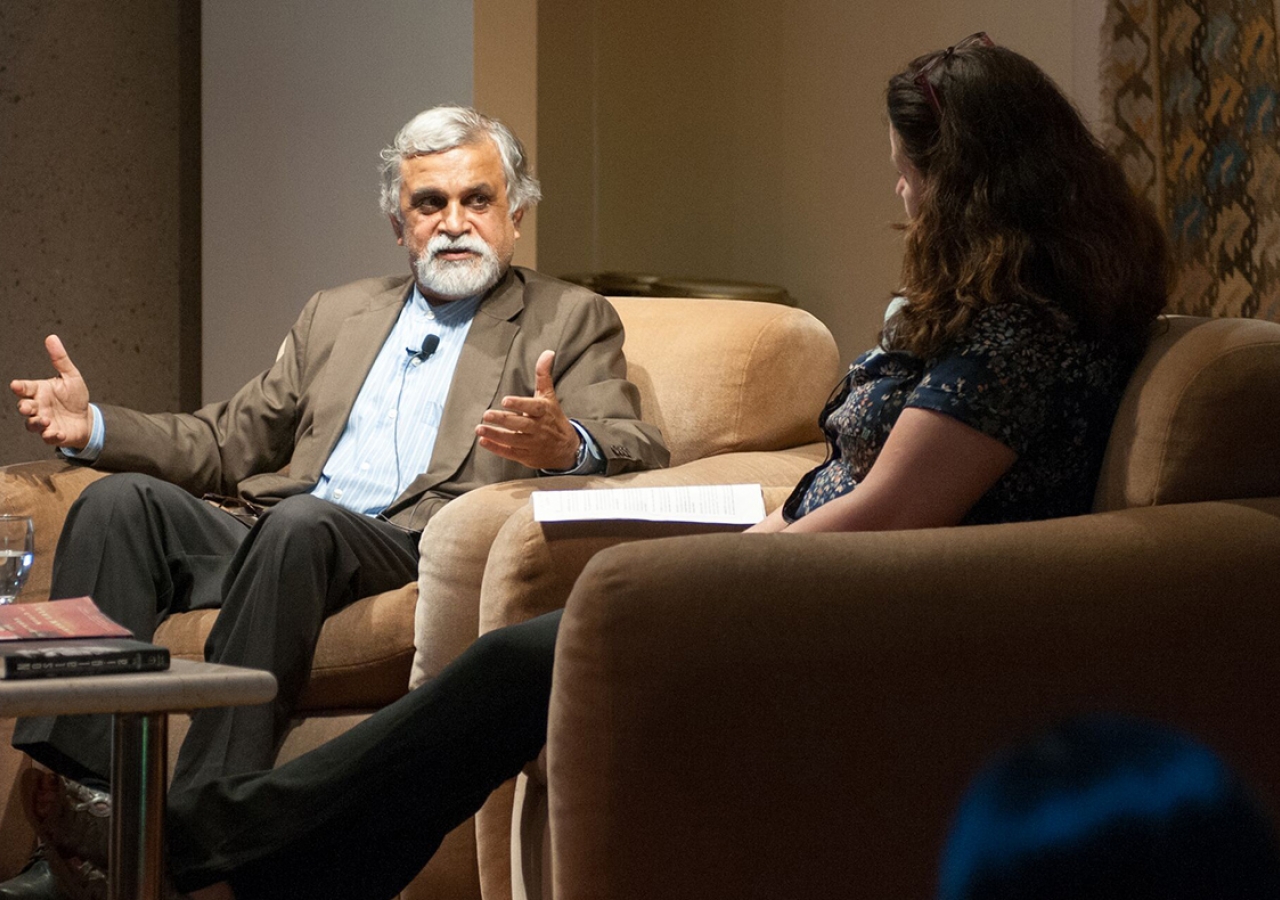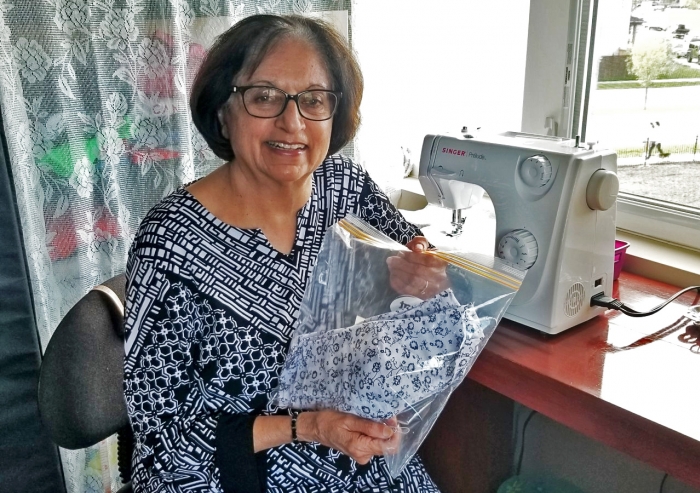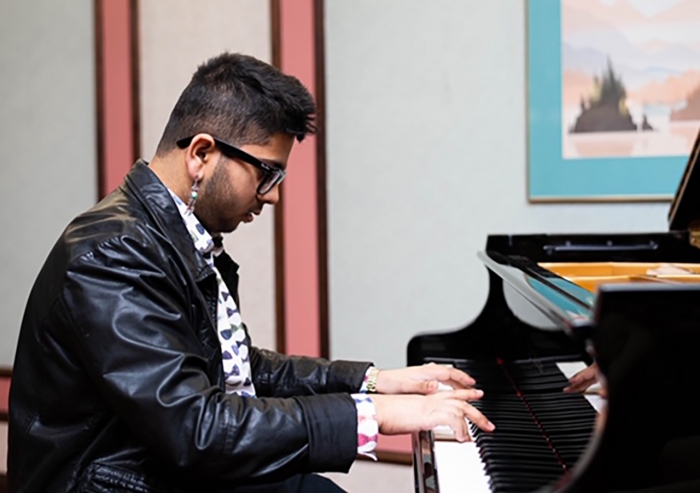Two days later, another 300 came to watch Morning Raga, featuring sitarist Mohamed Assani and tabla player Amarjeet Singh in the Centre’s courtyard.
The events were part of the Indian Summer Festival. In its seventh year, the festival brings together South Asian and First Nations artists, musicians and writers in order to be “a gathering place for people who believe in a society that is creative, diverse, inclusive and just.”
“The Indian Summer Festival loves the Ismaili Centre,” said Zahara Mawji, project manager for the events. “They think it’s beautiful and they were very happy to have the concert in the courtyard during the day.”
After the 70 minute musical performance, during which the audience sat attentively, attendees of the Morning Raga enjoyed a surprise visit from the Ismaili Centre Burnaby’s architect, Bruno Freschi.
Speaking after the concert, Freschi entranced the crowd. He then joined a tour of the Centre, adding his own personal stories.
A large reason for the success of both events was the quality of the speakers and performers. Vassanji joked and laughed with the crowd as he provided insight into his journey to becoming a celebrated author.
“Growing up, my options were becoming a teacher, an engineer or a doctor, but I always enjoyed the writing period in school,” said Vassanji, speaking about how he transitioned from being a physics professor to a full-time writer when he was younger.
“In fact, I enjoyed it so much that the teacher took away my composition book.”
Facilitating the discussion with Vassanji, Dr. Laura Moss, Editor of the journal “Canadian Literature” and associate professor in the Department of English at UBC, guided the author through select passages from his books.
Vassanji read passages from three books – Assasins’ Song, The In-Between Worlds of Vikram Lall, and his newest book, Nostalgia. When an audience member asked if he has any more novels in the works, Vassanji said he is always working on new ideas.
“It’s like breathing. I have to do it,” he answered.
Sirish Rao, artistic director of the Indian Summer Festival, spoke highly of the partnership with the Ismaili Centre which is now in its second year.
“We’ve always found not only a great turnout but also the quality of attention – everyone still lingering, still chatting, still dialoguing,” said Rao. “This is where pluralism comes from – from talking to each other, from realigning the norms.”
Rao believes the events at the Ismaili Centre will help change preconceptions within the audience about what they might encounter in a place of worship.
“That they’d be so warmly welcomed regardless of where they come from, that events happen here that are artistic in nature – it’s a beautiful building with open doors and open windows,” he said.









